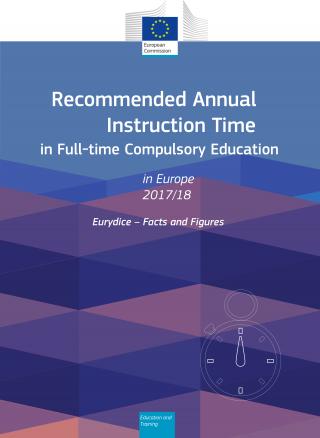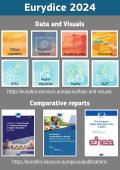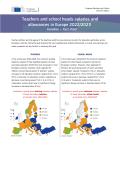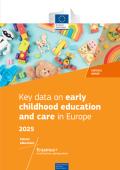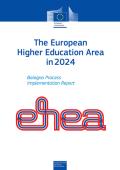Recommended Annual Instruction Time in Full-time Compulsory Education in Europe – 2017/18
Comparative analysis: DE ES FR HR IT MK PT ROSLA SR TR
The Council of the European Union has set the goal of reducing low achievement in reading, mathematics and science among 15-year-olds to less than 15 % by 2020. How are European countries going to achieve this? One of the key elements in the learning process is the instruction time available to students.
In fact, not only the quality of instruction but also the time available for learning can have a positive effect on students' learning process, in particular, in the case of disadvantaged students.
This Instruction Time report analyses the recommended minimum instruction time in full-time compulsory general education in 43 European education systems for the year 2017-2018.
Special attention is paid to subjects, with a special focus on reading, writing and literature, mathematics, natural sciences and social studies.
The report outlines how reading, writing and literature are the subject area that takes up the largest share of instruction time, especially in primary education. Mathematics represents the second largest share of instruction time. Its share decreases at secondary level in favour of other subjects such as foreign languages.
In addition to the comparative analysis, the report includes national diagrams that illustrate data by country and subject, which have been collected jointly by the Eurydice and the NESLI networks. Eurydice has been collecting data on instruction time for more than two decades and updates annually these findings, available on the Eurydice website since 2010.

